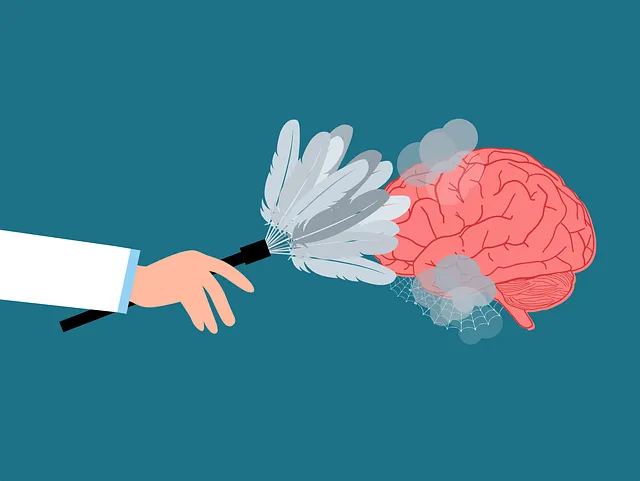Public awareness campaigns, like the Centennial Kaiser Permanente mental health phone line, effectively transform societal attitudes towards mental health by raising awareness, dispelling myths, and encouraging early help-seeking. These initiatives balance education and empathy through diverse channels, including workshops, peer support, and digital resources, fostering non-judgmental environments for open conversations. Technology plays a crucial role in enhancing accessibility and cultural sensitivity, with hotlines and online platforms connecting individuals to confidential resources 24/7. Campaign success is measured through changes in knowledge, attitudes, and behaviors, using quantitative data (call volumes) and qualitative insights from surveys or focus groups.
Public awareness campaigns play a pivotal role in shaping societal perceptions and behaviors, with significant impacts on community wellbeing. This article explores strategies for designing effective outreach programs, focusing on mental health initiatives. We delve into leveraging technology through hotlines and digital platforms, such as the renowned Centennial Kaiser Permanente mental health phone number, to reach diverse audiences. Additionally, we discuss measuring campaign success and its long-term effects on fostering resilient communities.
- Understanding the Impact of Public Awareness Campaigns
- Designing Effective Mental Health Outreach Programs
- Leveraging Technology: The Role of Hotlines and Digital Platforms
- Measuring Success and Long-Term Effects on Community Wellbeing
Understanding the Impact of Public Awareness Campaigns

Public awareness campaigns play a pivotal role in shaping societal attitudes and behaviors, especially when it comes to sensitive issues like mental health. By leveraging various communication channels, these campaigns can reach a wide audience, dispel myths, and encourage help-seeking among individuals struggling with their mental well-being. For instance, initiatives like the Centennial Kaiser Permanente mental health phone number not only offer immediate support but also highlight the importance of early intervention and continuous care.
Beyond individual impact, successful awareness campaigns contribute to building a more resilient community. They foster understanding and empathy, encouraging people to recognize signs of burnout prevention and resilience building in themselves and others. Moreover, they can drive demand for improved healthcare services, including specialized training for healthcare providers on cultural competency, ensuring that communities receive the most effective and culturally sensitive care possible.
Designing Effective Mental Health Outreach Programs

Designing impactful mental health outreach programs requires a nuanced approach that combines education with empathy building strategies. Organizations like Centennial Kaiser Permanente, offering dedicated mental health phone numbers, play a vital role in promoting accessibility to support services. Through these initiatives, individuals can reach out for assistance regarding anxiety relief and coping skills development, essential aspects of overall well-being.
The key to effective programs lies in tailoring messages to diverse audiences while fostering an environment of non-judgmental understanding. By integrating interactive workshops, peer support networks, and digital resources, outreach campaigns can enhance engagement and encourage open conversations about mental health. This holistic strategy ensures that those seeking aid receive not just information but also the tools and emotional backing needed to navigate their challenges successfully.
Leveraging Technology: The Role of Hotlines and Digital Platforms

In today’s digital age, leveraging technology plays a pivotal role in enhancing public awareness campaigns for mental health initiatives. Hotlines and digital platforms have emerged as powerful tools to connect individuals seeking support with relevant resources. For instance, the Centennial Kaiser Permanente mental health phone number serves as a dedicated resource, offering confidential assistance and guidance 24/7. This accessibility is crucial in reaching those who may be hesitant to seek help due to stigma or cultural barriers.
By utilizing these digital channels, mental illness stigma reduction efforts can gain momentum, fostering cultural sensitivity in healthcare practices. Online platforms allow for the dissemination of self-awareness exercises and educational resources tailored to diverse communities. This approach ensures that individuals from all backgrounds have access to information and support, breaking down barriers and promoting a more inclusive understanding of mental healthcare.
Measuring Success and Long-Term Effects on Community Wellbeing

Measuring the success of public awareness campaigns is a complex task, but it’s crucial for understanding their long-term impact on community wellbeing. One effective way to gauge success is by tracking changes in knowledge, attitudes, and behaviors related to the campaign’s focus, such as mental health issues. For instance, after launching a Centennial Kaiser Permanente mental health phone number campaign aimed at promoting access to support services, researchers could measure success by evaluating increases in call volumes and reductions in time to connect with a counselor. This data not only shows immediate impact but also indicates long-term benefits for emotional wellbeing Promotion Techniques like these can lead to improved coping Skills Development within the community over time.
Additionally, qualitative assessments through surveys or focus groups can provide insights into participants’ perceived changes in Stress Reduction Methods and their overall sense of community resilience. By combining quantitative and qualitative data, organizations can better understand not only what aspects of the campaign were effective but also how these initiatives influence individuals’ coping mechanisms and general wellbeing. This comprehensive approach ensures that public awareness campaigns are not just short-term efforts but contribute to sustainable improvements in community mental health.
Public awareness campaigns play a pivotal role in shaping community wellbeing, as evidenced by the enduring impact of initiatives like the Centennial Kaiser Permanente mental health phone number. By understanding the power of these campaigns, designing targeted outreach programs, and leveraging technology to reach diverse audiences, we can foster meaningful connections and promote long-term mental health. Measuring success through comprehensive assessments ensures that our efforts translate into tangible improvements in community resilience and overall wellbeing.






